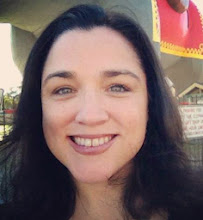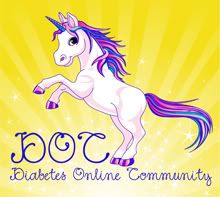#####
When I was first diagnosed with diabetes back in “77,” before glucose meters and CGMs,
I remember my dad (who was also a type 1,) telling me the following: If you start to feel low, do what you have to and do it immediately. Don’t make a grand production of it, just eat first and explain later. Grab your snack from your desk or from your dance bag or on the playground, eat and then tell your teacher how you’re feeling.
Don’t wait and don’t be afraid or embarrassed about what your friends or teachers might think. They don’t want anything bad to happen to you - they love you.
By eating first and explaining later, I soon found that I didn't have to explain the why, because my teachers and my friends understood the why.
They'd ask if I was OK and if needed anything, but eating first and on my own terms allowed some feeling of control when diabetes was challenging me in terms of control.
And in a way the phrase gave me confidence. Simple and direct, the rule of eat first and explain later, gave me power when it came to and over my diabetes.
I may have been mad that the low blood sugar was occurring and where - still am for that matter, but that's a subject for a different post.
Today with diabetes and technology, I'm all about testing my blood sugars, one might even say I'm obsessed with it - and there are times I say " I've got to eat know," when I know my internal blood sugar GPS is dipping south, but in those moments where my blood sugar drops low lightning quick and seemingly out of the blue, I eat/treat first and explain later if needed - And I make no apologies for doing what needs to be done.





























4 comments:
Good advice! Not only do you treat sooner, but you avoid the perceived obligation to explain something as complicated as hypoglycemia when you're clearly in no condition to explain. (I've tried explaining while low, and must have come across like a real fool)
Great post, but for some reason it feels like, for us with Type 2, the opposite happens. We tend to explain first before we eat. :D
I love that your dad addressed that fear that kids have that they will get in trouble by saying "they don't want anything bad to happen to you - they love you." That is pure awesome sauce.
I love this part, K2:
"Don't wait and don't be afraid or embarrassed about what your friends or teachers might think. They don't want anything bad to happen to you - they love you."
Post a Comment